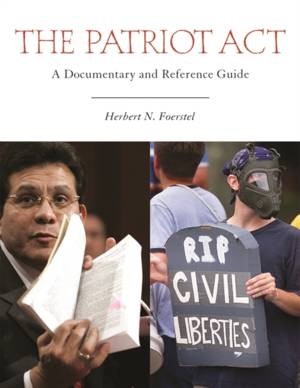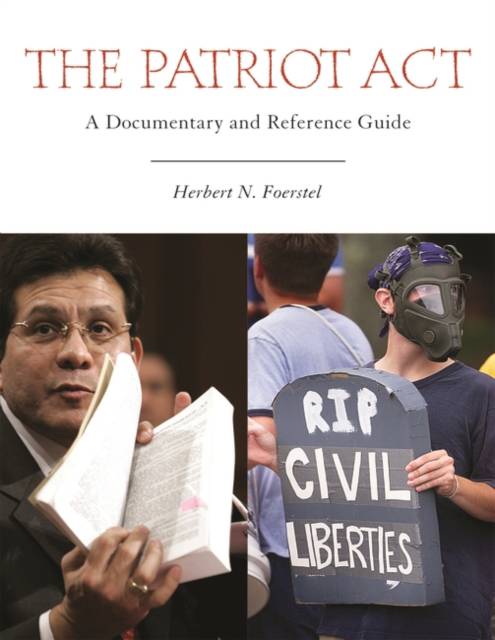
Door een staking bij bpost kan je online bestelling op dit moment iets langer onderweg zijn dan voorzien. Dringend iets nodig? Onze winkels ontvangen jou met open armen!
- Afhalen na 1 uur in een winkel met voorraad
- Gratis thuislevering in België vanaf € 30
- Ruim aanbod met 7 miljoen producten
Door een staking bij bpost kan je online bestelling op dit moment iets langer onderweg zijn dan voorzien. Dringend iets nodig? Onze winkels ontvangen jou met open armen!
- Afhalen na 1 uur in een winkel met voorraad
- Gratis thuislevering in België vanaf € 30
- Ruim aanbod met 7 miljoen producten
Zoeken
Omschrijving
This easy-to-use core reference takes on the biggest issue of our day: freedom of speech in post-9/11 America. No issue is more important to Americans--and especially to librarians--than the Patriot Act. The Patriot Act is one of the longest, broadest, most sweeping pieces of legislation in American history. It introduced a vast edifice of domestic surveillance that has defined the post-9/11 world. But the legislation itself is so massive and technical that both supporters and critics have been free to interpret it loosely and in partisan fashion. Supporters of the Patriot Act believe that 9/11 irreversibly changed American politics and law enforcement, forcing every citizen to cede some traditional civil liberties in order to protect the nation from terrorism. Critics respond that many provisions of the Patriot Act were simply resurrected from old FBI wish lists, having no relevance to the war on terror and providing little security in exchange for precious liberties. This book will not silence the raging debate over the Patriot Act, but by presenting relevant source documents, analyzed and placed in context, it may provide a more reliable basis for the ongoing debate.
Specificaties
Betrokkenen
- Auteur(s):
- Uitgeverij:
Inhoud
- Aantal bladzijden:
- 256
- Taal:
- Engels
- Reeks:
Eigenschappen
- Productcode (EAN):
- 9780313341427
- Verschijningsdatum:
- 1/12/2007
- Uitvoering:
- Hardcover
- Formaat:
- Genaaid
- Afmetingen:
- 221 mm x 281 mm
- Gewicht:
- 907 g

Alleen bij Standaard Boekhandel
+ 267 punten op je klantenkaart van Standaard Boekhandel
Beoordelingen
We publiceren alleen reviews die voldoen aan de voorwaarden voor reviews. Bekijk onze voorwaarden voor reviews.











